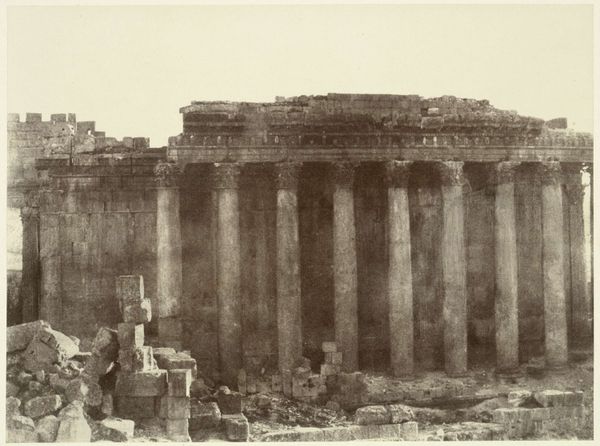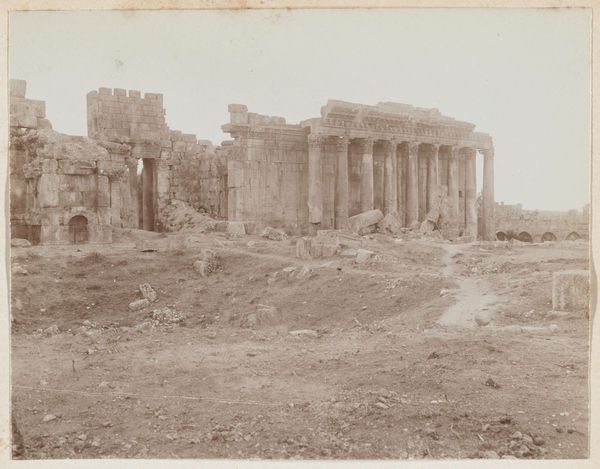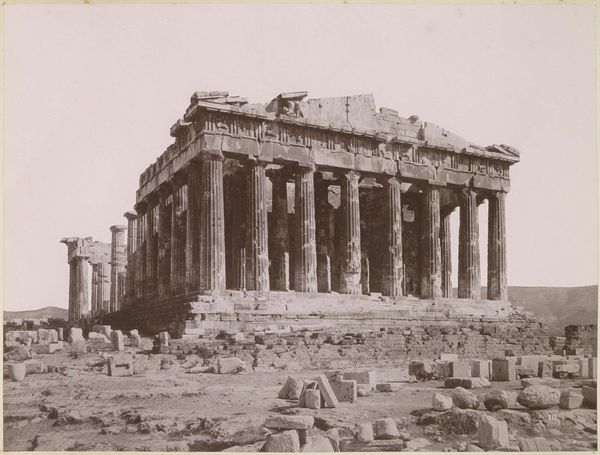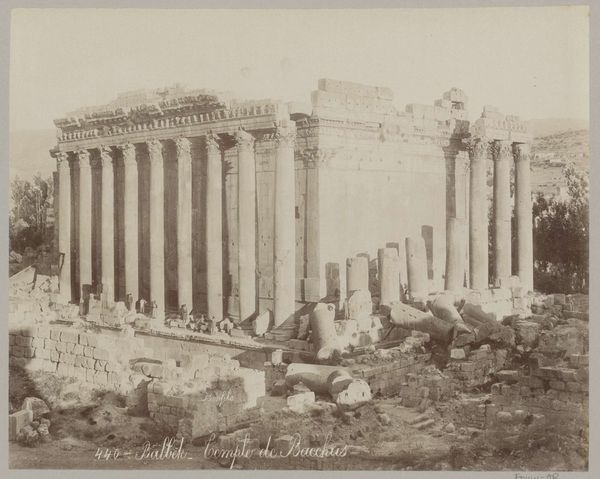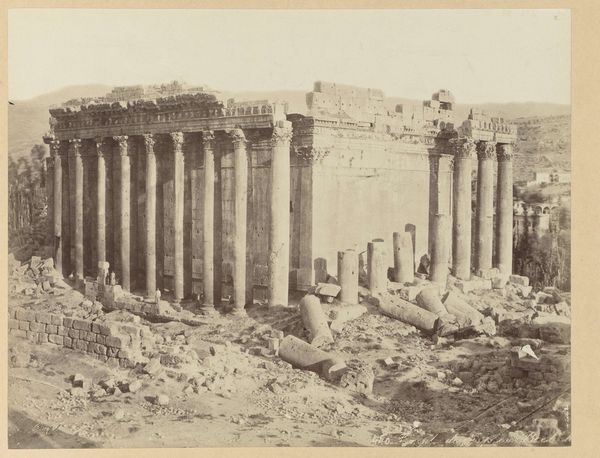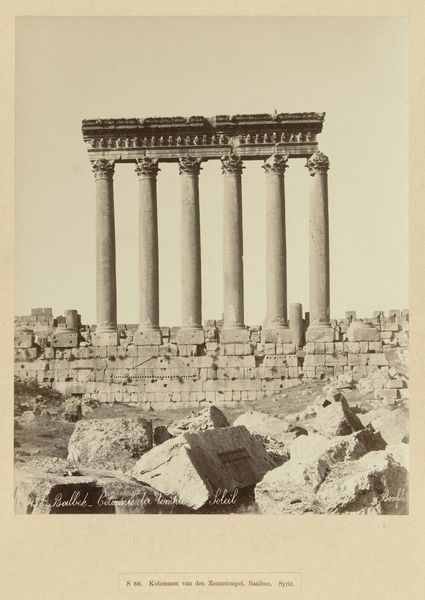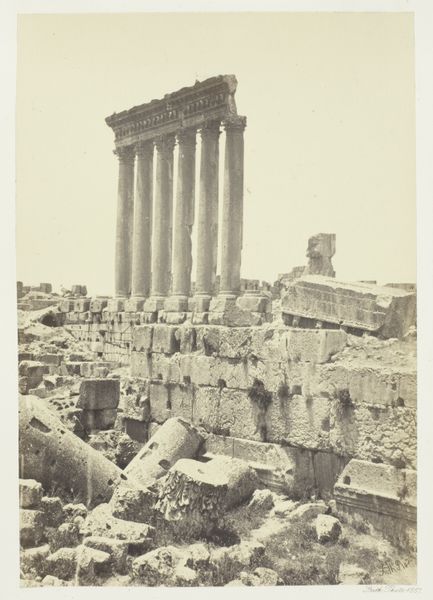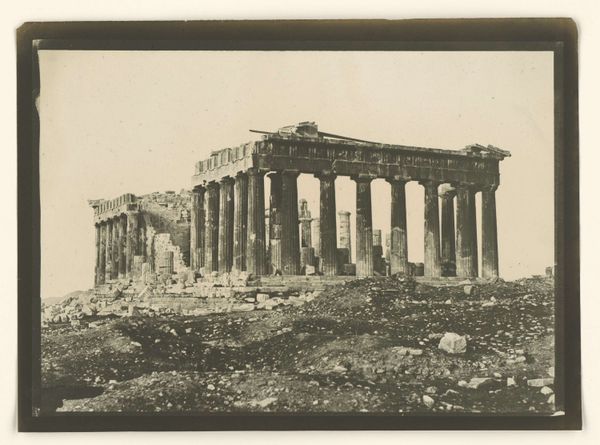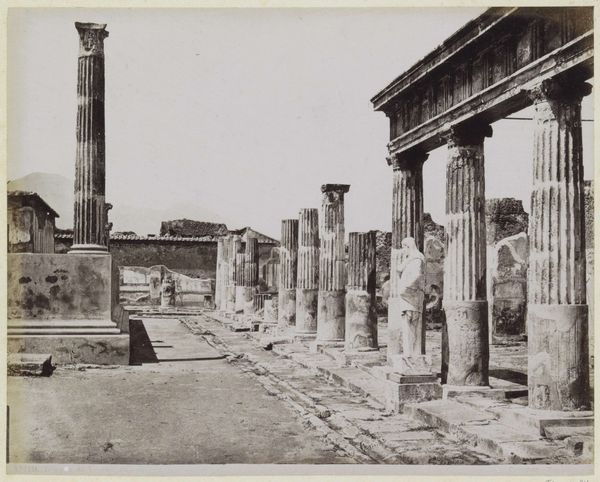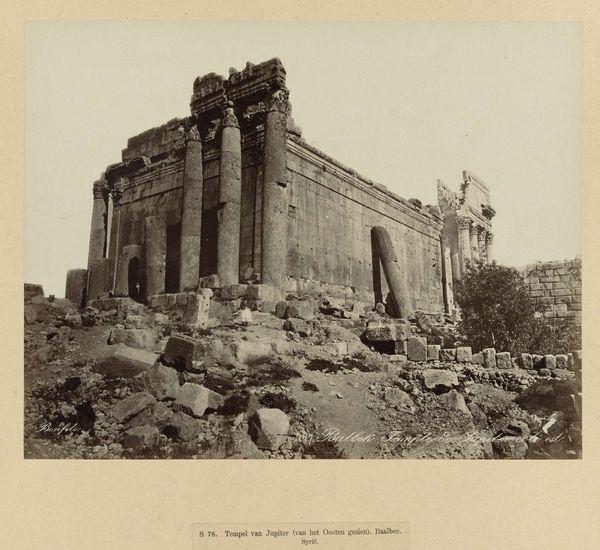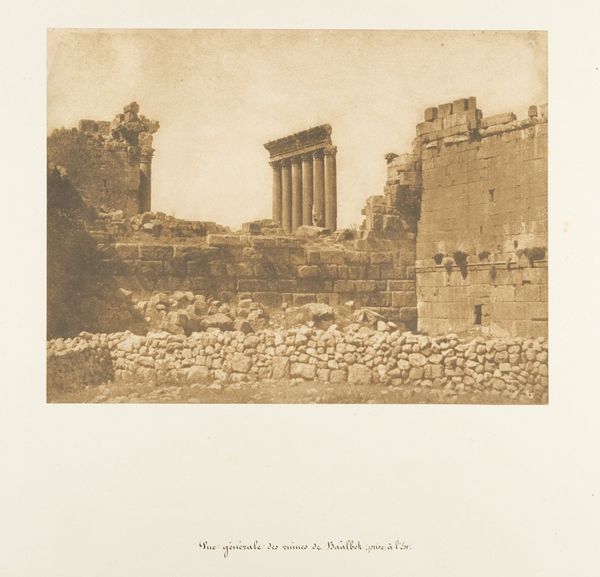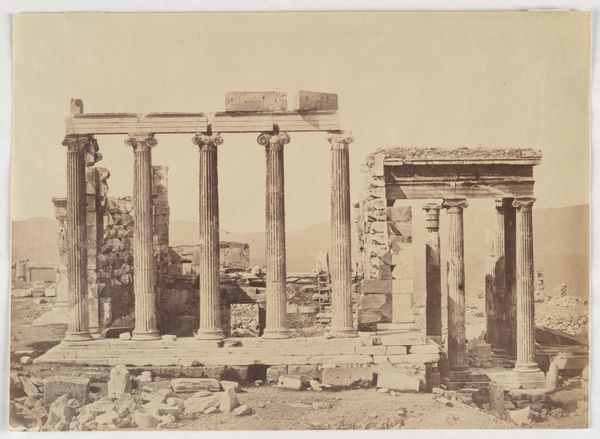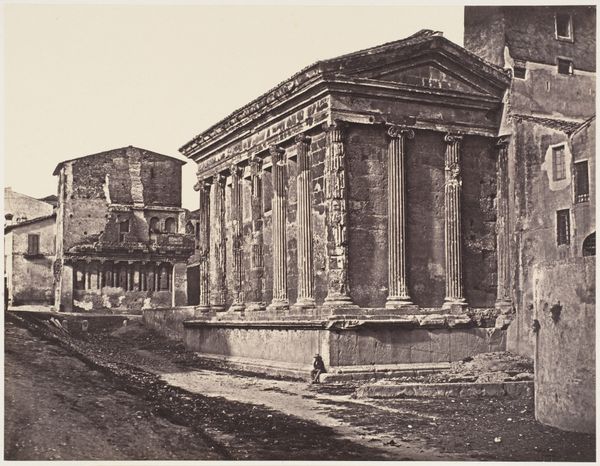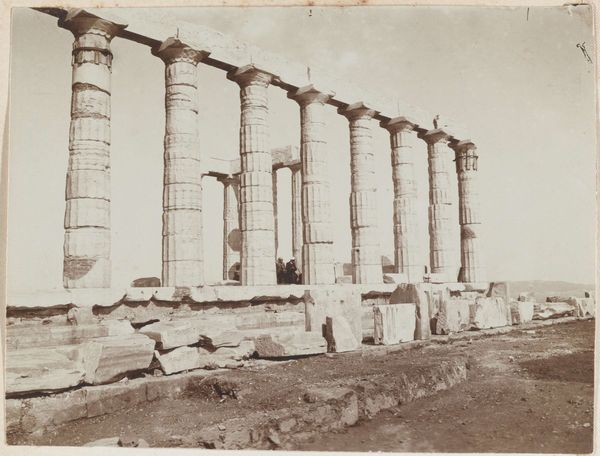
print, photography, site-specific
# print
#
landscape
#
photography
#
ancient-mediterranean
#
orientalism
#
site-specific
Dimensions: height 82 mm, width 109 mm
Copyright: Rijks Museum: Open Domain
Editor: This is an 1898 photograph, probably a print, by Johannes Lodewijk Heldring depicting the Temple of Bacchus in Baalbek, Lebanon. I’m immediately struck by the stark contrast between the massive, imposing architecture and its ruinous state. What do you see in this piece? Curator: This image offers a powerful intersection of Orientalism and archaeological documentation. The photograph, while seemingly objective, participates in a broader Western gaze upon the Middle East, framing it as a site of ancient grandeur in decay. Consider how Heldring’s perspective, as a Western photographer, might influence the way we perceive the site and its historical narrative. Editor: So, you're saying that the way Heldring composed the photograph itself contributes to a particular narrative? Curator: Precisely. Think about whose stories are amplified, and whose are silenced, through these visual representations. The Temple's association with Bacchus, a figure of Roman decadence, adds another layer. What does it mean to highlight this particular aspect of the site's history in the context of 19th-century European colonialism? Is it an appropriation of another culture's achievements to serve their purposes, maybe? Editor: That's a fascinating point. I hadn't considered the potential colonial undertones of the image. Curator: It forces us to confront the power dynamics inherent in the act of representation itself. The photograph, presented as a record, also becomes a construction, shaping our understanding of history and cultural identity. Editor: I see. I will definitely look at photography in a different light from now on. It's like there is a world of hidden meaning that you just revealed. Thanks for your enlightening insights. Curator: It has been a pleasure! Keep seeking to understand the interwoven narratives of the images we consume.
Comments
No comments
Be the first to comment and join the conversation on the ultimate creative platform.
